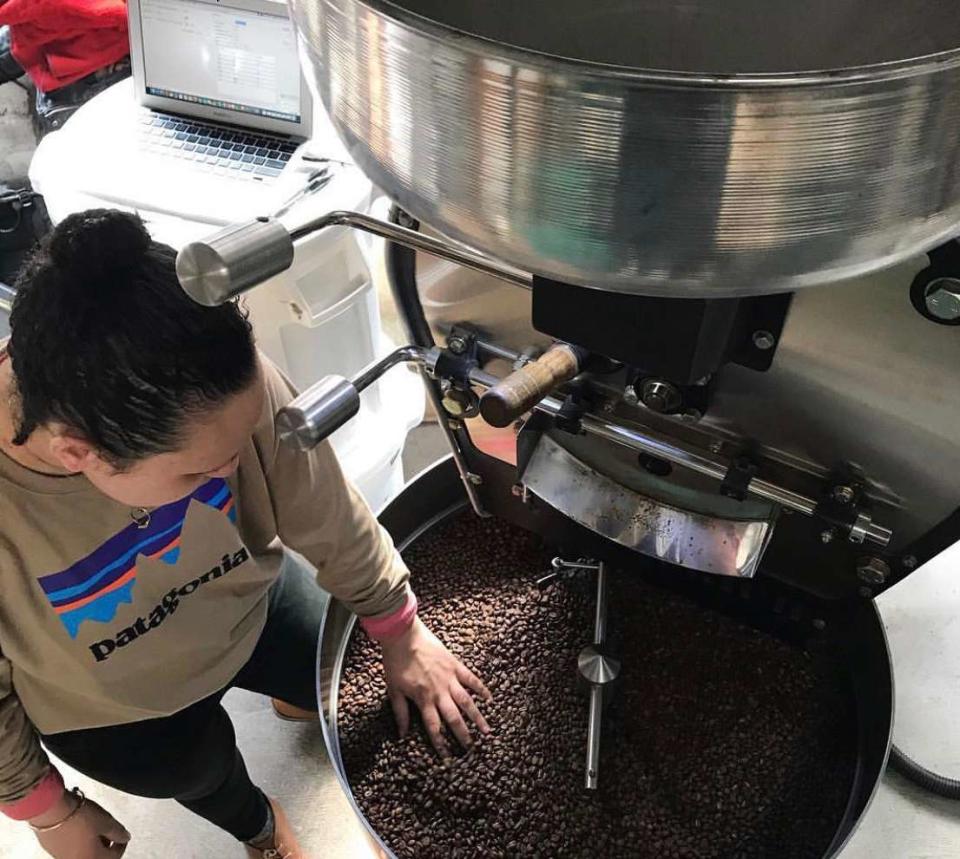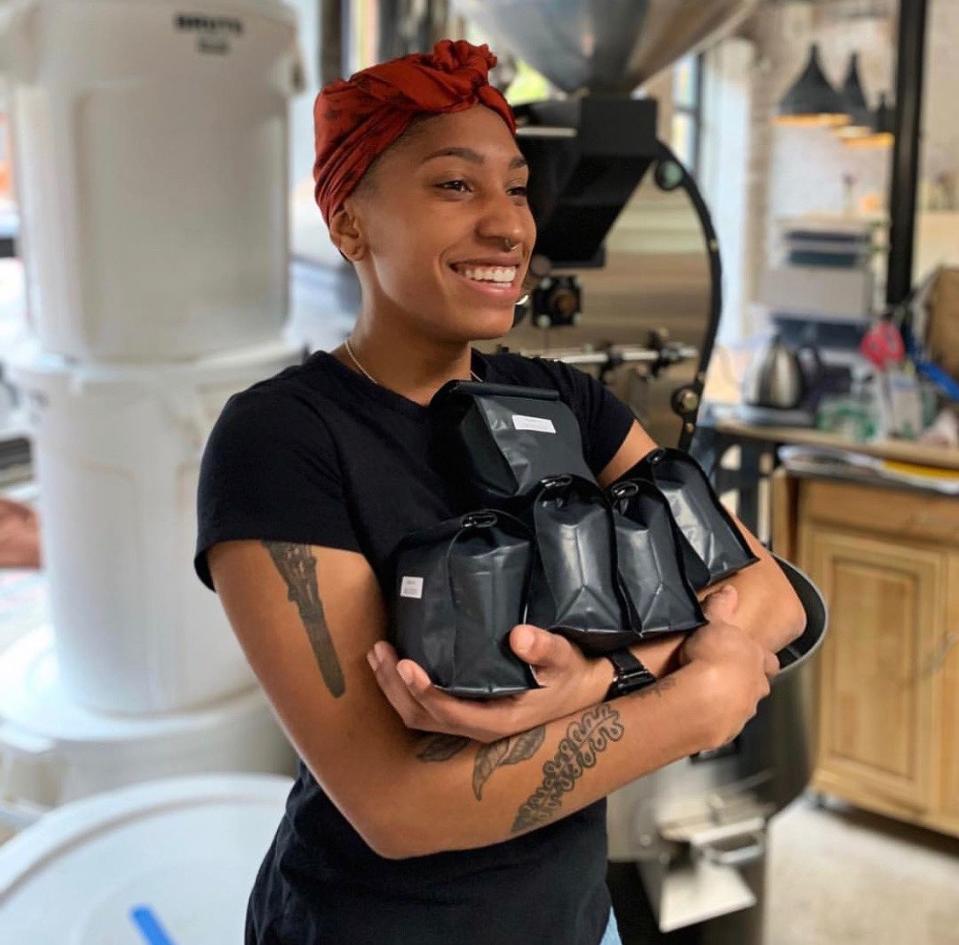From Bean to Cup: At Work with Two Female Coffee Roasters
Whether you prefer your coffee fruity, strong, or simply want something that tastes good, Selina Ullrich and Emily Wendorff have the beans for you. They're the female roasters behind East One Coffee Roasters which, in addition to its three NYC locations, has a wholesale coffee business and an online store where coffee drinkers can buy beans. The two oversee every detail of the coffee, from sourcing green beans and bringing out the flavor of those beans through the roasting process to helping educate the staff on how to serve them and offering suggestions to customers looking for coffee, eventually taking the feedback they get and incorporating it into the ever-changing menu.
Related: Three Women Who Are Making a Name for Themselves in Oyster Farming
How Do You Become a Coffee Roaster?
Much of what Ulrich, 29, the director of coffee at East One and Wendorff, 24, production roaster, do is about creating connections—with the farms doing the growing and the baristas and customers who do the brewing. Neither woman took a direct route into the coffee industry. Ullrich was taking a break from a strenuous college program when she began working at a coffee company. Intrigued by the production side of the industry she eventually helped a friend open up a coffee shop with its own roastery. A self-described nerd, Ullrich largely taught herself how to roast and began working at East One, as coffee and operations manager, when they opened their first location, in Brooklyn 2017.
Wendorff started at East One as a server. She had worked in a bike and coffee shop previously and at East One fell in love with all the tiny details that go into making the perfect magical cup of coffee. "I asked a lot of questions, did sensory and palate training, and dived into roasting, there's so much room for growth," she says.

East One Coffee Roasters
And What Is the Work of Roasting Like?
In a glass walled room that looks out into the seating area of the company's Brooklyn location is where Ullrich and Wendorff roast the green coffee beans. "We start by getting small samples in, roast them together and make projections of which ones are appropriate. We're looking for everything from people friendly coffees that will be a go-to to the more adventurous to balance out the menu," Ulrich explains. At any given time there are at least two single origin coffees (that's coffee from one farm), on the menu available as drip, as well as espresso, cold brew, and pour over.
All of the beans are medium to light roasted. After they've built the flavor profile and decided on the coffee menu, Ullrich and Wendorff roast roughly a 1,000 pounds of coffee each week, a process that takes 20 to 30 hours over the course of two days. "It's attention to detail from start to finish," Wendorff says "You source well, roast a good cup, prepare it well, present it beautifully."

East One Coffee Roasters
The Only Women in the Room
Wendroff and Ullrich are both expanding the coffee roasting demographic. While it's hard to find current data on the number of female roasters, it is still largely a male dominated industry. In 2016, after all of the competitors for the U.S. Roaster Championship were men, the Roasters Guild Event Committee and Specialty Coffee Association set up She's The Roaster to encourage and promote women roasters, yet when Wendroff and Ullrich attend conferences or other industry events they still often find themselves the only female roasters in the room. "It's easy to feel out of the community," Ullrich says. You're normally with 80 white guys but I decided if I'm going to be totally out of the norm, I might as well roast they way I want."
Being a woman has impacted how she buys coffee, Ullrich says. She often looks for women produced coffee and for progressive coffee such Fazenda Gabriella, a Brazilian coffee from a family coffee company, Our Coffees, that is available at East One. Our Coffees is committed to paying its workers a livable wage and has experimented with different types of processing. That's something Ullrich says more producers are doing as they work to make coffee sustainable in the face of a changing climate.
The connection to the farmers helps Ullrich's and Wendroff's roasting processes as well as the way in which they educate both staff and consumers about the coffee. "You have a responsibility to create the best possible roast for this coffee, which the producers worked so hard to create," Ullrich says.

